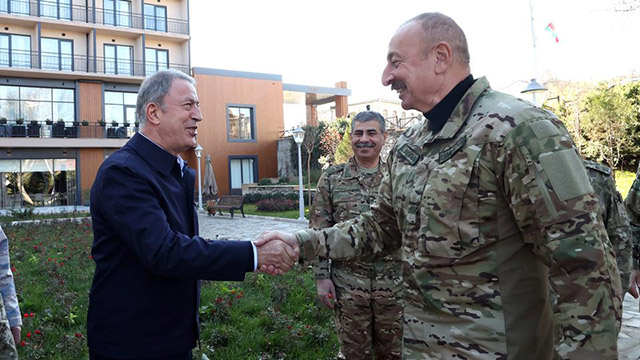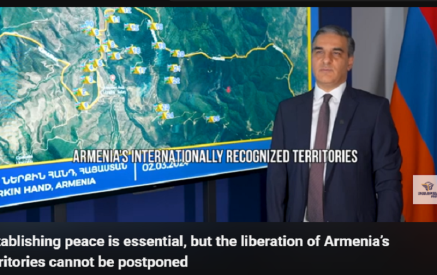Azerbaijan’s hatred and enmity is related not only to Armenia and Artsakh, but also to any phenomenon related to Armenianness in general, starting with hatred towards the state of Armenia, RA Human Rights Defender Arman Tatoyan told reporters on Friday, presenting a new extraordinary evidence-based report on the new developments and dangers of the Azerbaijani policy of anti-Armenianism in the post-war period. “It should be especially noted that the Azerbaijani government targets ordinary people.
For example, ‘Armenians are a barbaric nation, they took the dead out of graves, melted gold teeth, and sold them.’ Comparisons are also made that tend to incite hatred towards people. For example, “dogs, jackals, mentally ill people,’” the ombudsman quoted the statements of the President of Azerbaijan as an example.
Arman Tatoyan stressed that they tried to understand the source of such expressions. “We found Popov’s special dictionary from 1919, which explains that the word “gyavur,” which we all know means “unbeliever,” was also used to mean “dog.” It was used by the Turkish people as an insult to all those who were “infidels.” In other words, it was also used in this sense during the war and after that, it became a slogan.”
Read also
According to Arman Tatoyan, the Azeri propaganda is aimed at sowing the belief that if you are Armenian, you have bad qualities. “Recently, the President of Azerbaijan started it, saying that ‘Armenians are poisoned and that poison comes from the Diaspora.’”
He noted that our officials often speak about the hate speech of the President of Azerbaijan․ “I must especially emphasize that it is not so much rhetoric, but a policy implemented for years, starting with education. It is wrong to say that the Azerbaijani authorities or the president should stop that rhetoric. Then what? Imagine if that rhetoric stopped for a month. Will the hatred disappear? Let’s understand what the real policy is.” The ombudsman also stressed that after the war in Azerbaijan, people who called for peace were attacked to such an extent that they had to leave the country. “The owner of the Anderson cafe called for peace between the two countries, but was attacked, forced to close his business, and left.”
Luiza Sukiasyan


























































